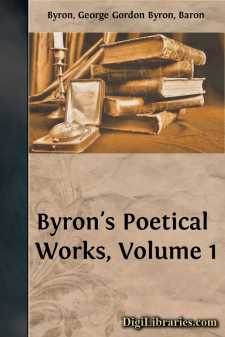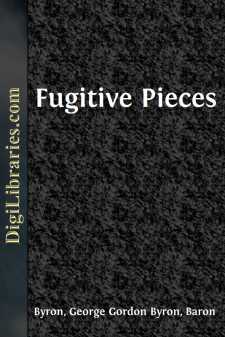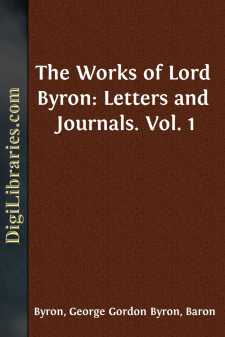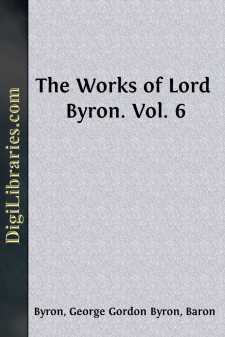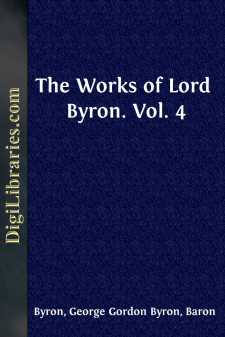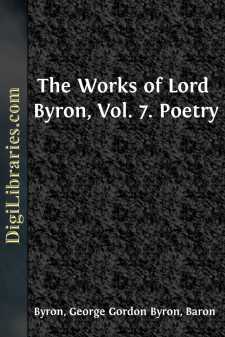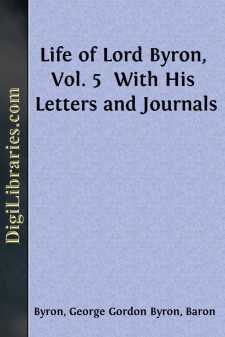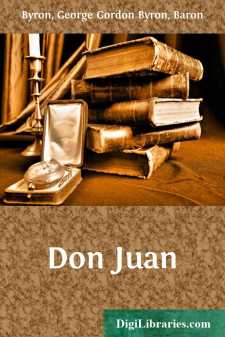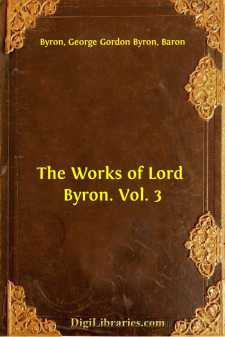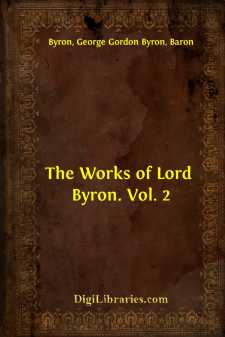Categories
- Antiques & Collectibles 13
- Architecture 36
- Art 48
- Bibles 22
- Biography & Autobiography 813
- Body, Mind & Spirit 142
- Business & Economics 28
- Children's Books 17
- Children's Fiction 14
- Computers 4
- Cooking 94
- Crafts & Hobbies 4
- Drama 346
- Education 46
- Family & Relationships 57
- Fiction 11829
- Games 19
- Gardening 17
- Health & Fitness 34
- History 1377
- House & Home 1
- Humor 147
- Juvenile Fiction 1873
- Juvenile Nonfiction 202
- Language Arts & Disciplines 88
- Law 16
- Literary Collections 686
- Literary Criticism 179
- Mathematics 13
- Medical 41
- Music 40
- Nature 179
- Non-Classifiable 1768
- Performing Arts 7
- Periodicals 1453
- Philosophy 64
- Photography 2
- Poetry 896
- Political Science 203
- Psychology 42
- Reference 154
- Religion 513
- Science 126
- Self-Help 84
- Social Science 81
- Sports & Recreation 34
- Study Aids 3
- Technology & Engineering 59
- Transportation 23
- Travel 463
- True Crime 29
George Gordon Byron Byron
George Gordon Byron, known as Lord Byron, was a leading figure of the Romantic movement and one of the most famous British poets. Born on January 22, 1788, he is best known for his narrative poems such as "Childe Harold's Pilgrimage" and "Don Juan," which are celebrated for their satirical wit and deep emotional resonance. Byron's flamboyant lifestyle and numerous love affairs contributed to his legendary status, and his work continues to influence literature and popular culture.
Author's Books:
Sort by:
The text of the present issue of Lord Byron's Poetical Works is based on that of 'The Works of Lord Byron', in six volumes, 12mo, which was published by John Murray in 1831. That edition followed the text of the successive issues of plays and poems which appeared in the author's lifetime, and were subject to his own revision, or that of Gifford and other accredited readers. A more...
more...
ON LEAVING N—ST—D. Through the cracks in these battlements loud the winds whistle, For the hall of my fathers is gone to decay; And in yon once gay garden the hemlock and thistle Have choak'd up the rose, which late bloom'd in the way. Of the barons of old, who once proudly to battle Led their vassals from Europe to Palestine's plain; The escutcheon and shield, which with ev'ry...
more...
PREFACE Two great collections of Byron's letters have been already printed. In Moore's 'Life', which appeared in 1830, 561 were given. These, in FitzGreene Halleck's American edition of Byron's 'Works', published in 1847, were increased to 635. The first volume of a third collection, edited by Mr. W. E. Henley, appeared early in 1897. A comparison of the number...
more...
INTRODUCTION TO DON JUAN Byron was a rapid as well as a voluminous writer. His Tales were thrown off at lightning speed, and even his dramas were thought out and worked through with unhesitating energy and rapid achievement. Nevertheless, the composition of his two great poems was all but coextensive with his poetical life. He began the first canto of Childe Harold in the autumn of 1809, and he did not...
more...
The source code for this HTML page contains only Latin-1 characters, but it directs the browser to display some special characters. The original work contained a few phrases or lines of Greek text. These are represented here as Greek letters, for example Οá¿âμοι. If the mouse is held still over such phrases, a transliteration in Beta-code pops up. Aside from Greek letters, the only...
more...
Of the seventy-three "Epigrams and Jeux d'Esprit," which are printed at the commencement of this volume, forty-five were included in Murray's one-volume edition of 1837, eighteen have been collected from various publications, and ten are printed and published for the first time. The "Devil's Drive," which appears in Moore's Letters and Journals, and in the sixth...
more...
LETTER 394. TO MR. MOORE. "Ravenna, October 17. 1820. "You owe me two letters—pay them. I want to know what you are about. The summer is over, and you will be back to Paris. Apropos of Paris, it was not Sophia Gail, but Sophia Gay—the English word Gay—who was my correspondent. Can you tell who she is, as you did of the defunct * *? "Have you gone on with your Poem? I have received the...
more...
DEDICATION Bob Southey! You're a poet, poet laureate,And representative of all the race.Although 'tis true that you turned out a Tory atLast, yours has lately been a common case.And now my epic renegade, what are ye atWith all the lakers, in and out of place?A nest of tuneful persons, to my eyeLike four and twenty blackbirds in a pye, Which pye being opened they began to sing'(This old...
more...
INTRODUCTION TO THE OCCASIONAL PIECES (POEMS 1809-1813; POEMS 1814-1816). The Poems afterwards entitled "Occasional Pieces," which were included in the several editions of the Collected Works issued by Murray, 1819-1831, numbered fifty-seven in all. They may be described as the aggregate of the shorter poems written between the years 1809-1818, which the author thought worthy of a permanent...
more...
INTRODUCTION TOTHE FIRST AND SECOND CANTOS OF CHILDE HAROLD. The First Canto of Childe Harold was begun at Janina, in Albania, October 31, 1809, and the Second Canto was finished at Smyrna, March 28, 1810. The dates were duly recorded on the MS.; but in none of the letters which Byron wrote to his mother and his friends from the East does he mention or allude to the composition or existence of such a...
more...


